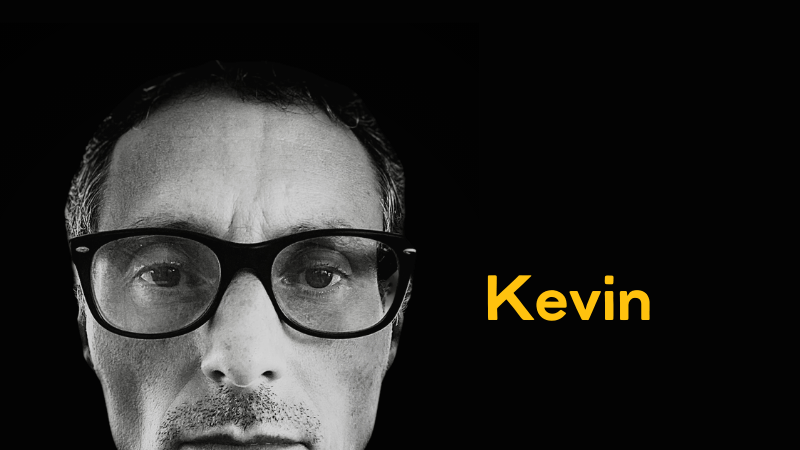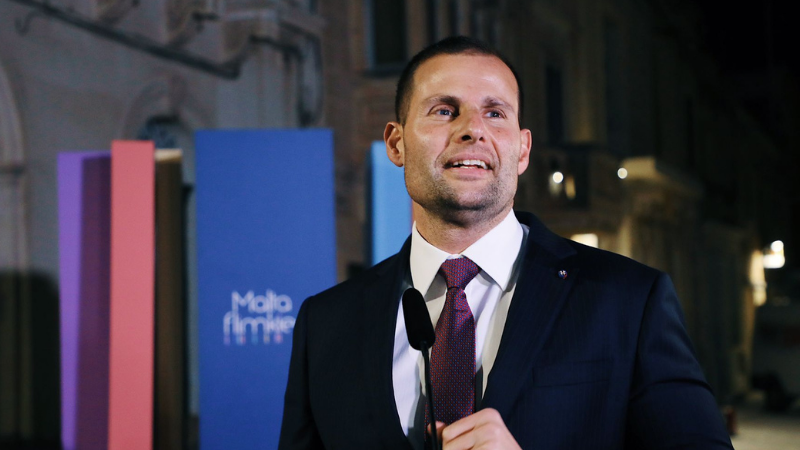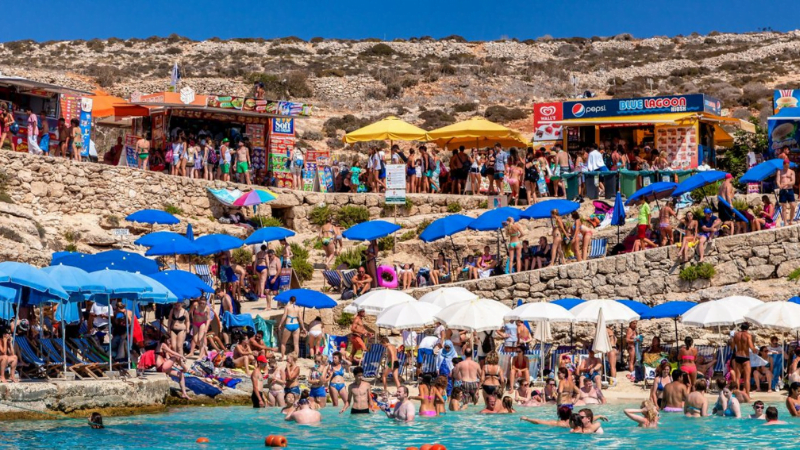The former prime minister was sentenced to 12 years in jail and fined €50 million, convicted of money laundering, breach of trust and abuse of power. His wife faced money laundering, bribery and tax evasion charges.
This wasn’t Malta, but Malaysia. After escaping justice for years, prime minister Najib Razak’s electoral defeat led to his conviction.
Here, Joseph Muscat’s Labour remains in power. Muscat’s bank account trebled in value in a few short months – but his bank accounts have not been probed. Nor have his wife’s. Even during the Egrant investigation none of the then prime minister’s electronic equipment, documents or records were seized.
When Razak came to power in 2009 he set up 1MDB – a sovereign wealth fund meant to transform Kuala Lumpur into the Asian Wall Street. It paid Goldman Sachs huge fees to raise money quickly and quietly. Over $6 billion were raised. The bank earned $600 million, 10 times more than expected. This was a huge red flag.
Muscat brought in Henley and Partners to set up the golden passport scheme. Henley was making 4% on each passport sale and an additional 4% on the sale of government stocks. Minister Edward Scicluna refused to divulge in parliament why other brokers normally earned 0.3% while Henley earned 4%.
Henley reaped 10 times more than expected. Muscat concealed this. It was revealed by the regulator. This was a huge red flag. The Guardian revealed that Henley was actually raking in far more – charging €100,000 for passports for a family of four. In return, the Marigold Foundation, run by Muscat’s wife, received €50,500 in donations from the passport scheme.
While Razak had Goldman Sachs, Muscat had Pilatus. Tim Leisner, a bank official responsible for making the scam possible, pled guilty to money laundering and violating anti-bribery laws. He is co-operating with US authorities.
Muscat’s friend, Ali Sadr Hasheminejad – Pilatus Bank owner – was convicted of bank fraud and breaching US sanctions. A US court later reversed his conviction on a technicality. His Pilatus licence was revoked by the European Central Bank and the bank shut down. But not before Keith Schembri and Brian Tonna transferred hundreds of thousands of euro through it. The bank provided financial assistance to passport buyers. Pilatus clients included President Aliyev’s children and those of his Minister of Emergency Situations Kamaladdin Heydarov.
Over $4 billion was stolen from 1MDB. In 2015, 1MDB paid an inflated price for a power plant. The plant was purchased from a company called Genting plantations which used the over-payment to make a donation to a charity chaired by the prime minister. The charity used the money to buy votes for Razak.
Muscat entered into a secret agreement with SOCAR. The deal gave SOCAR exclusivity to provide Malta’s liquefied gas for 18 years – despite Azerbaijan buying it from Shell. In 2017 alone, Malta paid SOCAR $40 million more than the gas was worth from Shell.
On 3 October 2017, Yorgen Fenech, Electrogas director, wrote, “I got a request to help a Foundation from the prime minister’s wife, keep in mind for next year”. That Foundation, Marigold, would receive over €500,000 in taxpayers’ money – €140,000 directly from her husband’s office. Its auditor was Nexia BT.
Enemalta paid €10.3 million for its share in the Mozura windfarm while the declared sale price on the contract was €3.5 million. Over €7 million was funnelled back to Yorgen Fenech’s 17 Black – €4.6million in pure profit.
In Malaysia, $700 million from 1MDB found its way into the prime minister’s bank account. He denied this, claiming it was a donation from a Saudi. Muscat received a €21,000 donation for first class tickets, transportation and accommodation for him and his family for a Dubai weekend. He refused to name the benefactor who paid the money in Jordan.
For years, Razak managed to squash many of the investigations against him. He removed the chief prosecutor and replaced him with a loyal supporter who refused to co-operate with foreign jurisdictions investigating the prime minister. His appointee squashed probes into the prime minister and his wife’s bank accounts. Those demanding a probe were removed from the anti-corruption review panel.
Muscat appointed Lawrence Cutajar, a loyal sycophant, as police commissioner. Cutajar blatantly refused to investigate Pilatus Bank. He buried FIAU reports highlighting money laundering suspicions involving Muscat’s chief of staff Keith Schembri, Konrad Mizzi, Adrian Hillman and Brian Tonna. FIAU officials who dared investigate were sacked.
Jho Low, the brains behind 1MDB, faced charges of conspiracy with the prime minister and money laundering. He forfeited $700 million of personal assets including a super yacht and a Beverly Hills hotel, and then absconded. He remains a fugitive, although he tried to buy a Maltese passport.
In Malta, Hillman is wanted for money laundering with Muscat’s chief of staff. Like Low, Muscat’s appointee to the Malta Gaming Authority and his representative on the AUM board remains a fugitive despite his willingness to return ‘voluntarily’.
When Razak was voted out, $30 million in cash and $240 million in jewellery and luxury items were found in his house. He claimed they were official gifts that he intended to return to the state. Muscat said the same about his luxury Bvlgari watch and Petrus wines.
Millions of dollars went straight into the account of Razak’s power-hungry wife. She had a division created for her in the prime minister’s office. She was feared by civil servants. Michelle Muscat was given a government email address and was listed as being part of Muscat’s private secretariat. The Auditor General was refused access to draw up an inventory of Villa Francia, where Michelle Muscat held mediation meetings with Brigadier Jeffrey Curmi.
In 2018, outraged by the excesses of their prime minister and his wife, Malaysians delivered an unexpected and shocking defeat. His party had been in power for over 60 years. The man who seemed untouchable was brought down at the pinnacle of his power. Back in Malta, Labour continues to ride an unassailable majority – even as the excesses multiply.













Excellent analysis! Malta has achieved ‘Heard Immunity’ long ago. Thanks to the excellent work of journalists the majority of the population have ‘heard’ of the depths of corruption however they are ‘immune’ to the truth. Yes, unlike Malaysia if an election were to happen tomorrow the majority of the electorate would choose corruption.
The days of reckoning for so many tyrants, dictators and similiar political thieves have all arrived – and delivered justice, even after years of their enjoying the ‘fruits’ of their ‘labours’.
The day of reckoning seems also to have finally arrived for the Malaysian Prime Minister.
Their own day of reckoning will arrive for others, too – irrespective of their nationality or their name, as they will by then be denuded of the artificial immunity from Justice and will be made to pay for their crimes.
Maybe it will take quite a while for it to do so. Or no?
Trouble is Malta does not have an opposition that is anywhere close in strength & reliability to the one in Malaysia. Rest assured if one existed the situation would be very different.
Min seraq jew qieghed jisraq lil poplu malti hu min hu ghada pitada jew jispicca il habs jew l id twila ta hollieq tikastikah b kull mod. İl kuxjenza tibqa tnigzu.
‘Where Muscat held mediation meetings with Brigadier Curmi…’ hmm no smoke without fire.